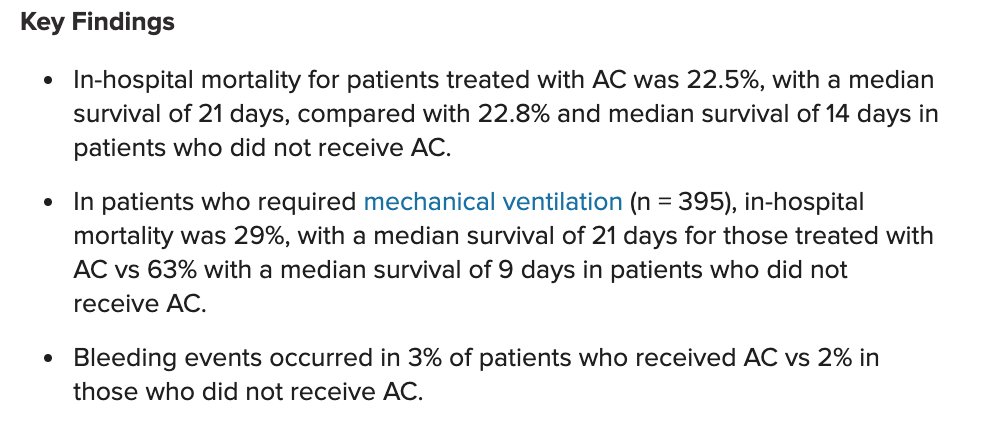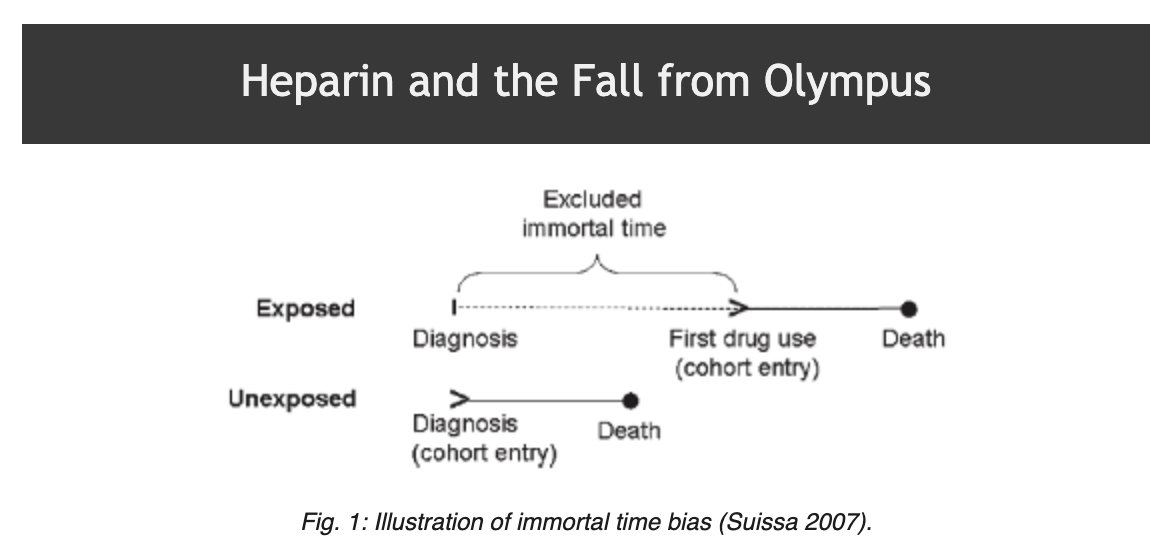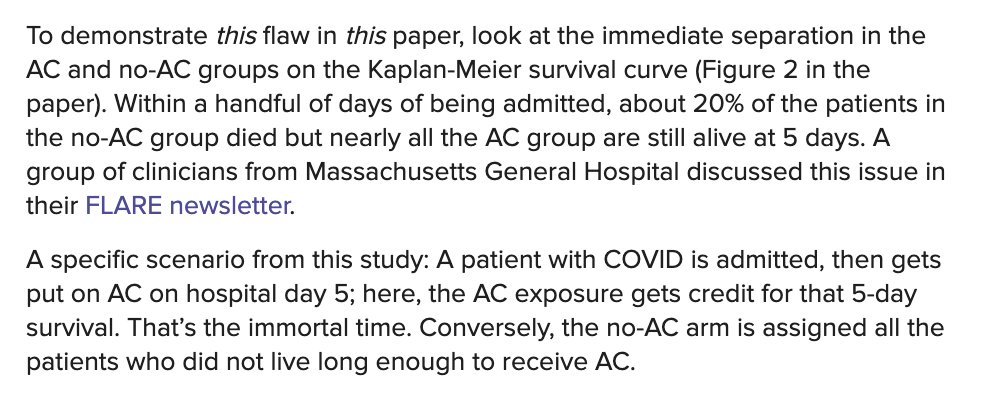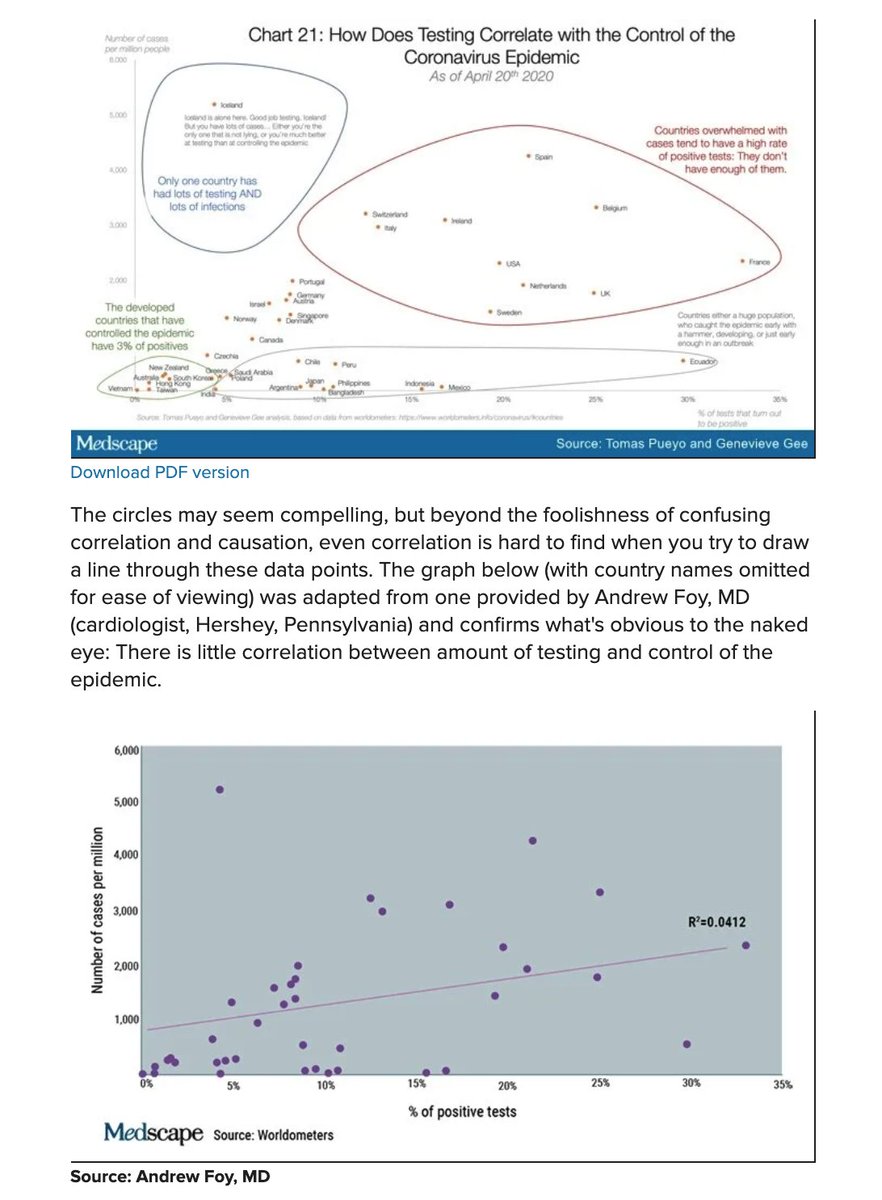I wrote a critique of a flawed study published in a major journal. The study reported on the assoc of anticoagulant use and death in COVID pts.
medscape.com/viewarticle/93…

Here is the link to the research letter in JACC onlinejacc.org/content/early/…

See also MGH team us19.campaign-archive.com/?u=ef98149bee3…


1) You could be wrong --harm both pts and trust in science
2) You destroy equipoise --> makes it hard for thinking docs to individualize care and to randomize pts in proper trials.
The problem w/ post-publication review is that it's hard to put the genie back in the bottle. Exhibit A -hydroxychloroquine
None of this is personal. The critique is of ideas not people.






